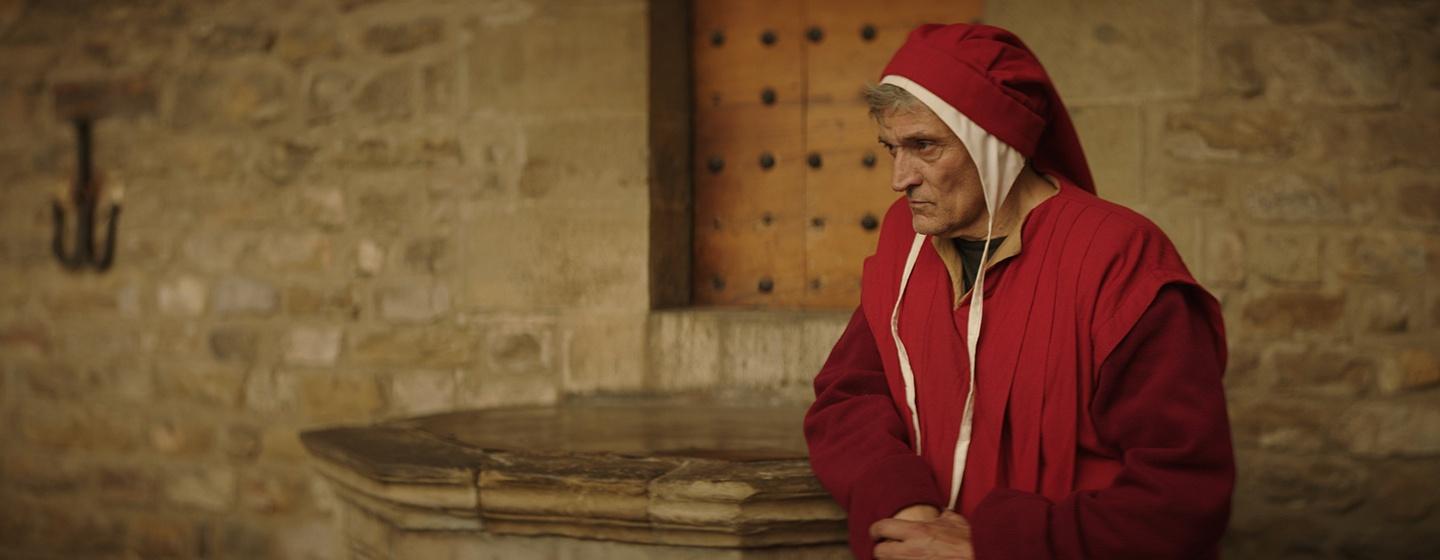Dante: Inferno to Paradise
PBS Western Reserve (WNEO 45.1 / WEAO 49.1):
Monday, March 18, and Tuesday, March 19, at 8 PM
Tuesday, March 19, and Wednesday, March 20, at 1 AM
Fusion (WNEO 45.2 / WEAO 49.2):
Saturdays, March 23 & 30, at 7 PM
DANTE: INFERNO TO PARADISE is a two-part, four-hour documentary film chronicling the life, work and legacy of the great 14th century Florentine poet, Dante Alighieri, and his epic masterpiece, The Divine Comedy, one of the greatest achievements in the history of Western Literature. The ambition of the film, which combines powerful dramatic reenactments, colorful interviews with renowned scholars, exquisite archival material and scenic filming, is to bring to life and make accessible, to the widest possible audience, the transformative power and beauty of this singular work of art.
Part One: Inferno explores the historical background of medieval Florence and recounts the dramatic details of Dante’s childhood, education and early literary and political career. Culminating in his exile in 1302 and with his decision to begin "The Divine Comedy" in 1306, the story plunges into Dante's work. "The Divine Comedy," begins in the underworld with the Roman poet, Virgil, guides Dante and they meet a vast cohort of historical and mythological figures before arriving at the very bottom of hell and encountering Lucifer himself. Dante wrote at a moment not unlike our own of tremendous upheaval, crisis, doubt and change — as the feudal world crumbled and a new modern one loomed into view — a world beset from without and within by greed, corruption, factionalism and violence, and in which every aspect of the moral, political, social, religious and economic order seemed to be breaking apart. Confronting such a world, Dante chose not to despair but “to portray” what he saw, as scholar Lino Pertile observes, “and to show there is another way.” Seeking to save himself and to save the world, he created a poem that embraced every aspect of the learning, history and art of his time — all the while addressing questions relevant to this day. Is there free will? How can we live a moral life? How should we treat each other?
Part Two: Resurrection explores Dante’s experience in exile, and his completion of the last two parts of the Comedy, shortly before his death in Ravenna in 1321. Interweaving soaring scenes drawn from Purgatory and Paradise, the film goes on to explore the literary and cultural fate of Dante’s masterpiece from the time of his death down to today. Embracing the entire human community, committed to an egalitarian vision that placed women on an equal footing with men, and determined to communicate to the widest possible audience — Dante wrote his groundbreaking work in a form of vernacular Florentine that would become the basis of the Italian language itself. Centuries later, on these shores, the poem spoke to something deep in the emerging American psyche and soul: the Dante of exile, of freedom and free will. In praise to Dante for blazing a new path for language and literature, one that might serve as a model for American literature itself, Ralph Waldo Emerson declared: “Dante is Italian because at that moment he could most live as an Italian. At this moment, he would be born American.”



